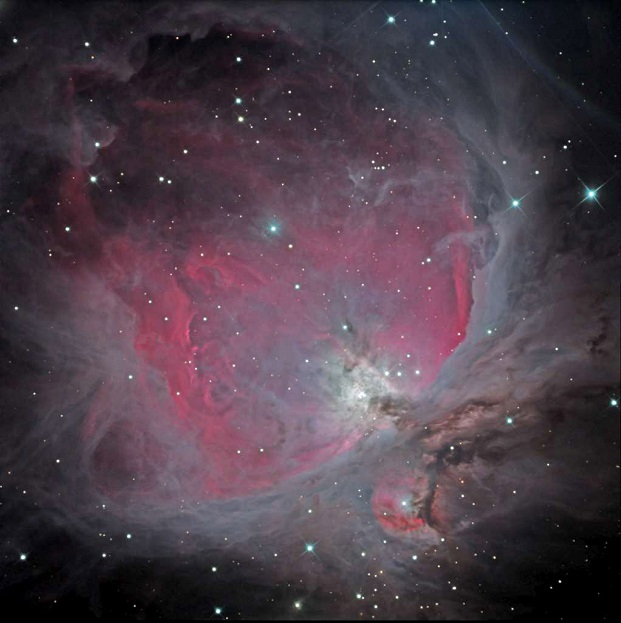Telescope Guru
Your independent source of information on Telescopes and Astronomy
Are you interested in telescopes but unsure where to start? We provide easy-to-understand information about telescopes. We cover how to select a telescope, how to set one up for first use, and how to get the best from it.
Of course the fun side is getting out and observing the night sky. To help you with this we have observations guides. Each guide covers two months to make them easy to read and follow.
Welcome
Why Telescope Guru?
How to use the site
Telescopes
A telescope is an instrument that collects light from dim objects. The concentration of light also makes it possible to magnify the object making previously invisible details visible. Some people describe telescopes as ‘light buckets’ as they collect light in a similar fashion as does a bucket collects water during a rain storm. However, a telescope collects photons rather than water.
A telescope works by refracting or reflecting light with the use of a lens or a mirror. Lenses are used primarily in refractor telescopes while reflector telescopes use mirrors. There are some types of telescopes that use both lenses and mirrors.
Astronomy
Observing Guides
For most the night sky is an unknown. Even someone with a small amout of knowledge will not fully comprehdend the nature of the wonders that can be observed with the naked eye, a pair of binoculars or through a small telescope.
To help you on your journey we are putting together a set of guides. We will be providing six guides. Each guide will cover two months of the year.
Equipment
What is commonly observed with telescopes
Solar System
The most obvious targets are the Moon and planets in our own solar system. All of the planets out to Saturn are easy to observe with a small telescope. In fact, all of the planets out to Saturn are visible with the naked eye. The Moon is an interesting object to study in detail. With the correct training and equipment, we can use a telescope during the day to study the Sun.
Deep Sky Objects
Galaxies are a popular object for observation. With the naked eye, it is possible to see our neighboring galaxy, Andromeda. Of all the objects in the night sky with the naked eye Andromeda is the only one that is not part of our own galaxy. Of course, we can also see our own galaxy as in snakes across the night sky if you are at a dark site.
For more information on what is visible with a telescope see: What Can You See With A Telescope?
The Astronomy section of this website contains more detailed information on these objects and a whole lot more.
Recent Articles
For most the night sky is an unknown. Even someone with a small amout of knowledge will not fully comprehdend the nature of the wonders that can be observed with the naked eye, a pair of binoculars or through a small telescope.
To help you on your journey we are putting together a set of guides. We will be providing six guides. Each guide will cover two months of the year.

